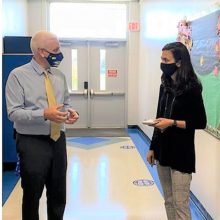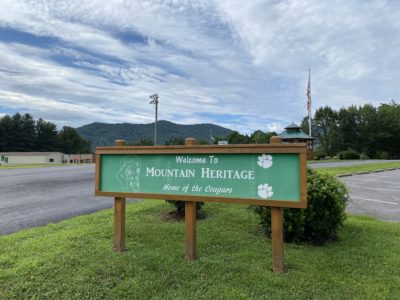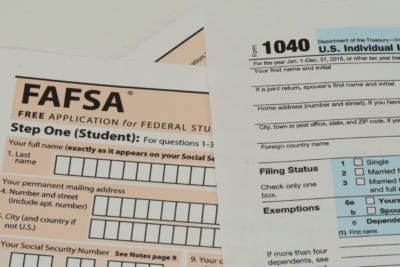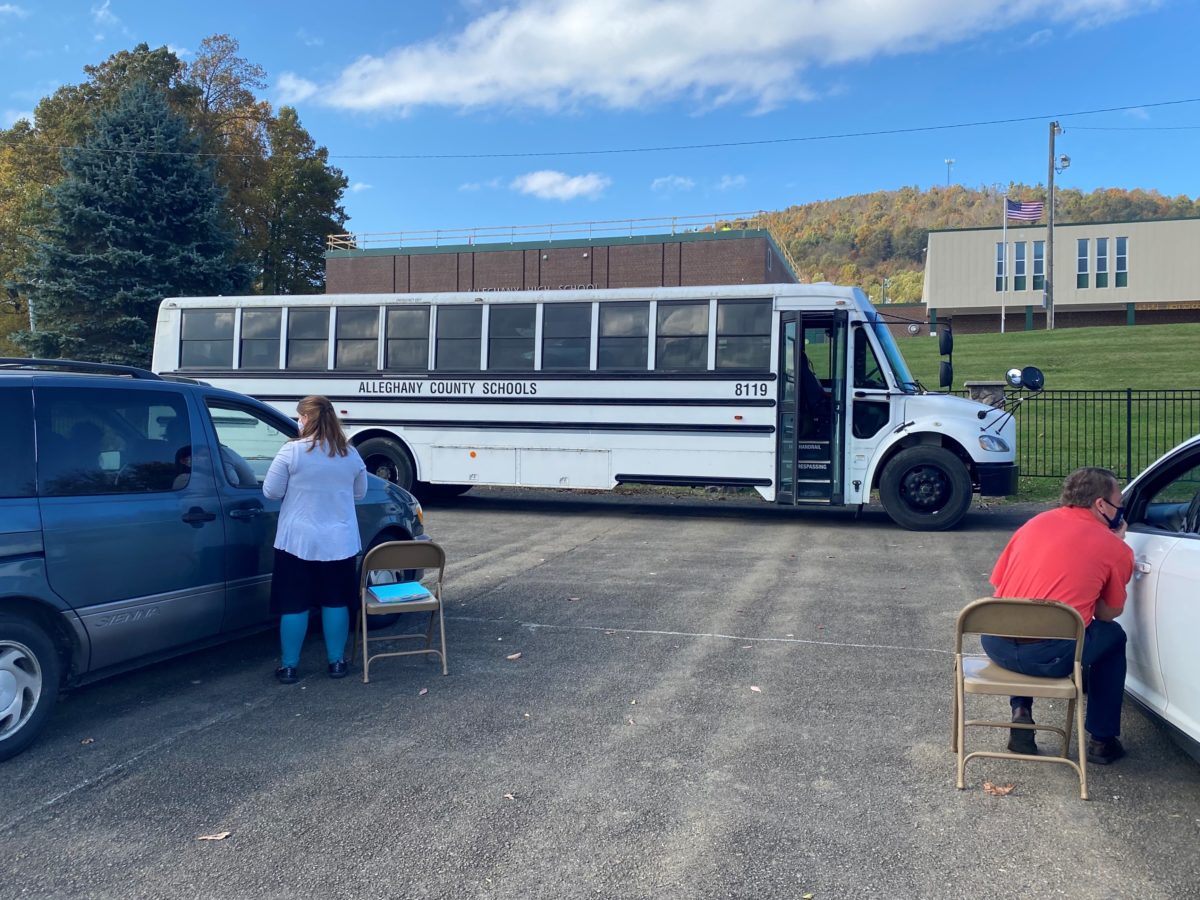
The COVID-19 pandemic has spurred drive-in movie theaters, drive-in concerts, and now, drive-in FAFSA workshops.
In years past, high schools across North Carolina relied on in-person events, such as FAFSA family nights, to provide hands-on assistance for students and families working to fill out the form. Now, counselors and college advisors are finding innovative ways to continue those efforts while adhering to health and safety guidelines.
For more on what the FAFSA is, why it matters, and what’s different this year, read the article below.
On a warm day in mid-October, the parking lot at Alleghany High School was transformed into a drive-in FAFSA workshop. From 4 to 6 p.m., students and parents were encouraged to park their cars, pull out their Chromebooks (every student has one), and connect to Wi-Fi from a nearby activity bus.
After parking, a masked staff member would greet the car, pull up a chair near their window, and begin walking them step-by-step through the FAFSA process. Meanwhile, another staff member delivered free meals and water bottles to the car — on this particular night, it was Chick-fil-A.
“This is part of our efforts to maintain social distance as well as privacy and still get people the help that they need with filling out the FAFSA,” said Hannah Brady, a counselor at Alleghany High.
Funding for the meals was made possible by GEAR UP, a federally funded college access program designed to increase the number of students who are prepared to enter and succeed in postsecondary education immediately after high school. GEAR UP at Appalachian State works with 11 western North Carolina counties, including Alleghany.
Emily Kaitlyn Joines, a senior at Alleghany High, attended the event and filled out her FAFSA form entirely.
“It was extremely helpful. Filling out the FAFSA forms can be really complicated, and I’m very grateful that our school held this event,” she said. Joines hopes to attend UNC-Chapel Hill next year and wants to go to pharmacy school.
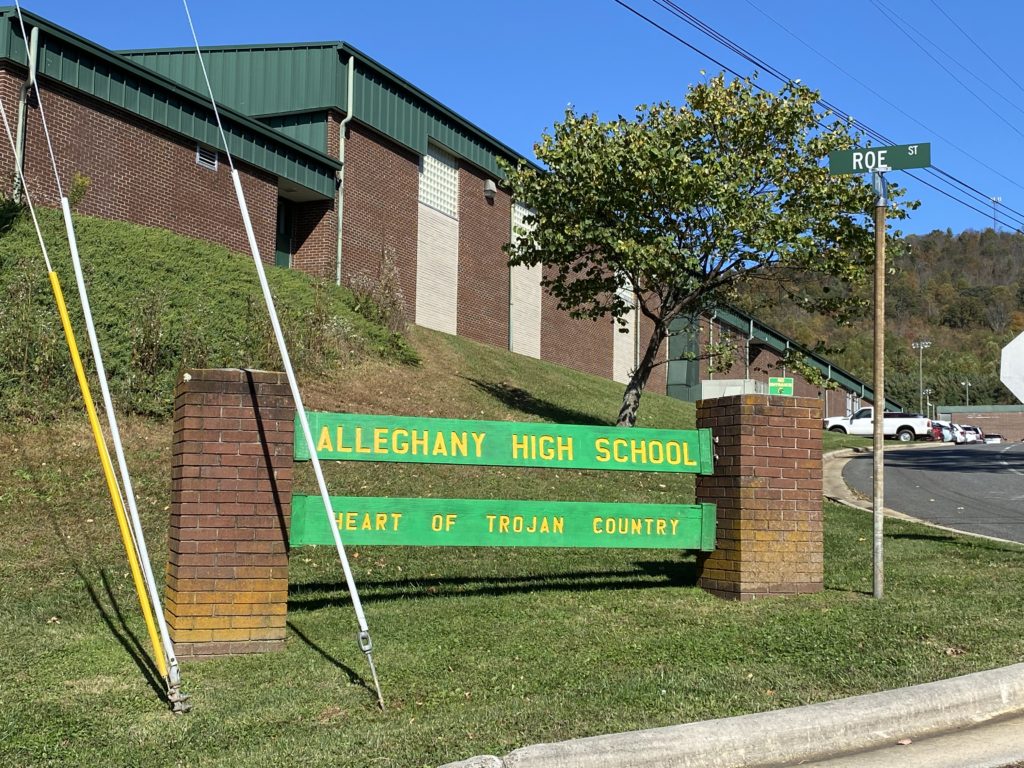
Alleghany High is the only high school in Alleghany County Schools. It serves roughly 400 students. Analisa Sorrells/EducationNC 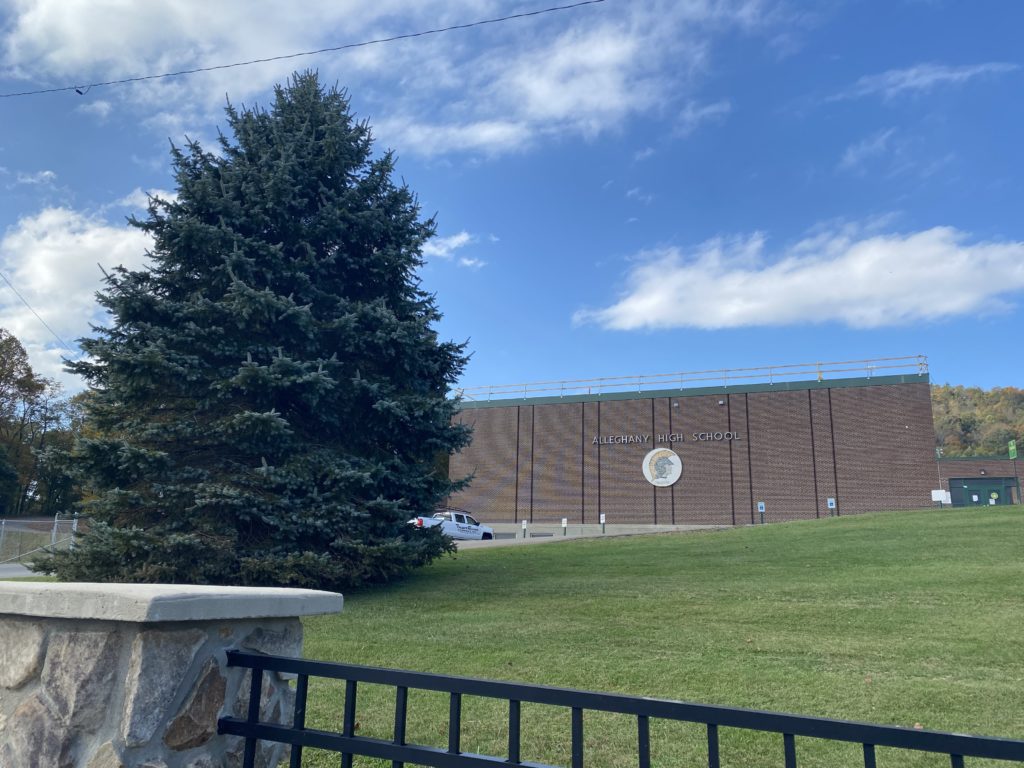
A large pine tree in front of Alleghany High. Christmas trees are the largest agricultural crop in the county. Analisa Sorrells/EducationNC
Alleghany High is operating under plan B, where students attend one week of in-person instruction followed by one week of remote instruction. In some ways, Brady says the school year has been better than she anticipated. But it’s also been difficult to reach some students.
Before the pandemic, she relied on pulling students out of class for one-on-one advising meetings. Now, she’s trying to reach them through other methods like e-mail.
“In some ways, it’s been fine. … In other ways, we do feel like it’s hindering (us),” she said. “We’ve gotten off to a much slower start than in previous years with this process.”
The school has additional virtual events planned for the fall, like online college fairs. Brady said plans for the spring will depend on what has changed with COVID-19 protocols.
Current high school seniors are now filling out the FAFSA as part of the 2021-22 cycle. Below, find completion data by LEA from the previous cycle, 2020-21, as of Oct. 2.
